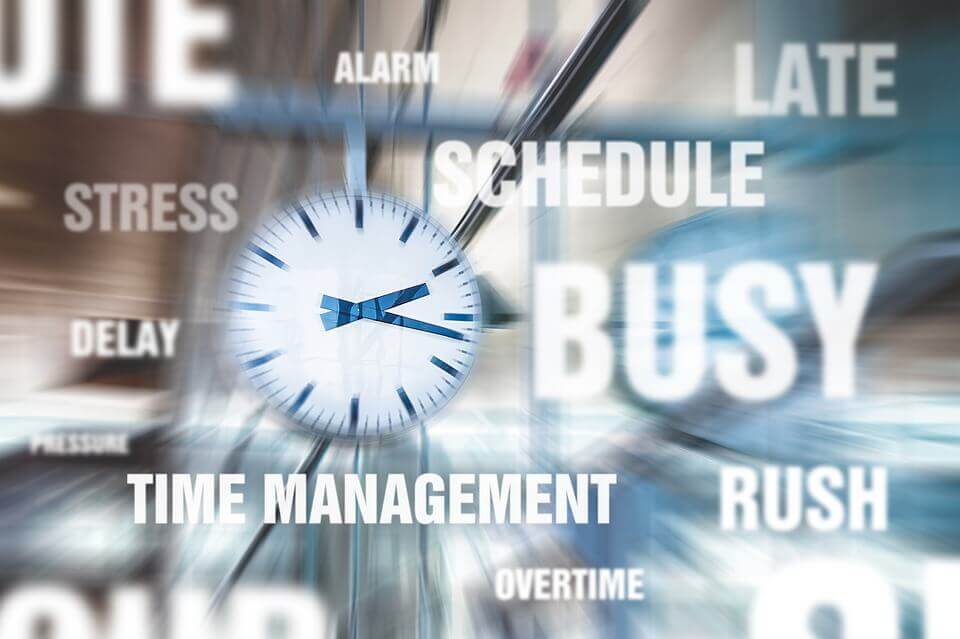World of digital marketing is hectic and often fueled by nothing more than the fire of the creatives. They do provide excellent solutions for your clients, but their tardiness and irresponsibility can put an entire campaign into jeopardy.
And that is where you, the marketing manager, come in. It is up you to keep them organized and productive at all times, simultaneously keeping your clients happy and in the loop. However, in the midst of all that chaos, it can happen that you lose yourself as well:
yesterday you regarded yourself organized and productive, and now you cannot keep up with who’s doing what. It is time to retake control once again.
To help you achieve this, we’ve selected five habits of productive marketing managers you can use throughout your day as well.
1. Eat a frog in the morning
This a cure for procrastination and for fretting over things you haven’t done yet.
This metaphor was first used by Brian Tracy and symbolizes the nasty but ultimately unavoidable tasks that you keep putting off, and do when it is more convenient.
The solution here is to eat the frog (solve a problem) early in the morning while you’re fresh and well rested.
Therefore, every morning dedicate an hour of your time to that dreaded task, it should be enough to take a serious bite out of it, if not complete it.
The greatest benefit of this approach is that frees your mind from unnecessary distractions and dwelling over things you didn’t do, or tasks you still have to complete.
Afterward, you will feel much more relaxed and will stress less over sudden changes in your daily schedule. The frog has been eaten in the morning. Now there is nothing to worry about.
2. Urgent and important work gets done straight away – rest can wait

Steven Covey’s book The 7 Habits of Highly Effective People gives one of the best productivity hacks: organize your weekly duties by using two-by-two matrix, with “urgent” and “not urgent” vertical columns and “important” and “not important” horizontal rows.
- Quadrant 1: Urgent-Important – These are the most pressing of tasks we’ll likely get to this week. The most pressing meetings or deadlines fall into this category.
-
Quadrant 2: Not Urgent – Important. These are the things that matter in the long-term but will yield no tangible benefits this week or even this year.
-
Quadrant 3: Urgent – Not Important. These tasks clog up our time today but, when we look back at these things at the end of the week, we’ll have to admit they were a waste of time. These are interruptions that happen, such as phone calls, or poorly thought-out meetings.
-
Quadrant 4: Not Urgent – Not Important. These things we do because we feel like we’re tired and need a break.
Once you’ve figured out what are the “urgent-important” tasks that need to be handled, organize your day or even your week accordingly.
You can use a daily planner or – if you want to get some real work done – a project management software. There are many options on the market, and while Basecamp is the most famous one, there are excellent Basecamp alternatives such as ActiveCollab also available for less.

In the screenshot above, You can see the pricing of Basecamp and ActiveCollab. Basecamp has a fixed pricing starting from $99/month, which allows you to manage unlimited users and projects while Active Collab is offering affordable plans for small teams and their plans are starting from $25/month.
You can find The Ultimate List of 120 Best Content Marketing Tools to create, curate and promote content.
3. Hold productive meetings
When push comes to shove, there is no time for lengthy, unnecessary meetings. If there is a chance to avoid them, do it.

If there isn’t, you have to take full control and optimize the time spent by clearly defining what outcomes should be up front.
Different types of teams require different approach. Nevertheless, schedule them first thing in the morning or at the end of a working day, so you don’t interrupt the employee’s creative flow.
One more trick you can use to make your meetings more productive is to ask attendees to “check in” and “check out” of each session.
When team members check in, let them share what they expect to get from the meeting. When they see, make sure you note if they got what they came for.
4. Tune-Out

Finally, the only way to fight distractions is by ignoring them – or ‘tuning-out’. First of all, ‘tune-out’ the email: schedule a meeting with yourself during which you will go through and organize all mail. Afterward, you will feel refreshed and filled with that blissful ‘inbox zero’ joy.
Next, schedule your working time and don’t allow yourself or others to take any of your working time. Hold it sacred until you’ve finished what you need to finish – this is your focus ‘tune-out time’, and no one is allowed to disturb it. It will help you stay more focused and more efficient – no question.
5. Focus on the few and don’t overthink
Make a list of things you have to do in the evening, choose two, maximum three and get them done the next day – no excuses.

Those should be marked as your ‘primary tasks’ (MITs). By focusing on the few important tasks, rather large number that will overwhelm you, you can rest assured that nothing will slip from you.
Once you’ve selected what should be done the next day, do not dwell on the decision. When you are busy, you can quickly make an excuse that you need more information before making a decision.
Recognize these are excuses as such and try to avoid them as they simply cloud your mind and paralyze your productivity. Analyze the facts you have before you, trust your team, and make the call decisively.